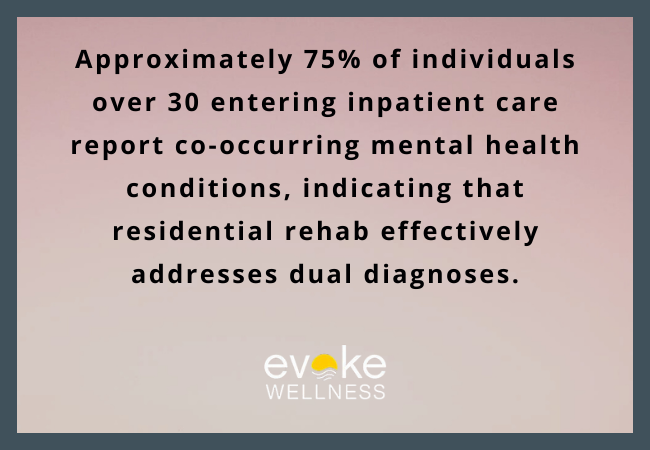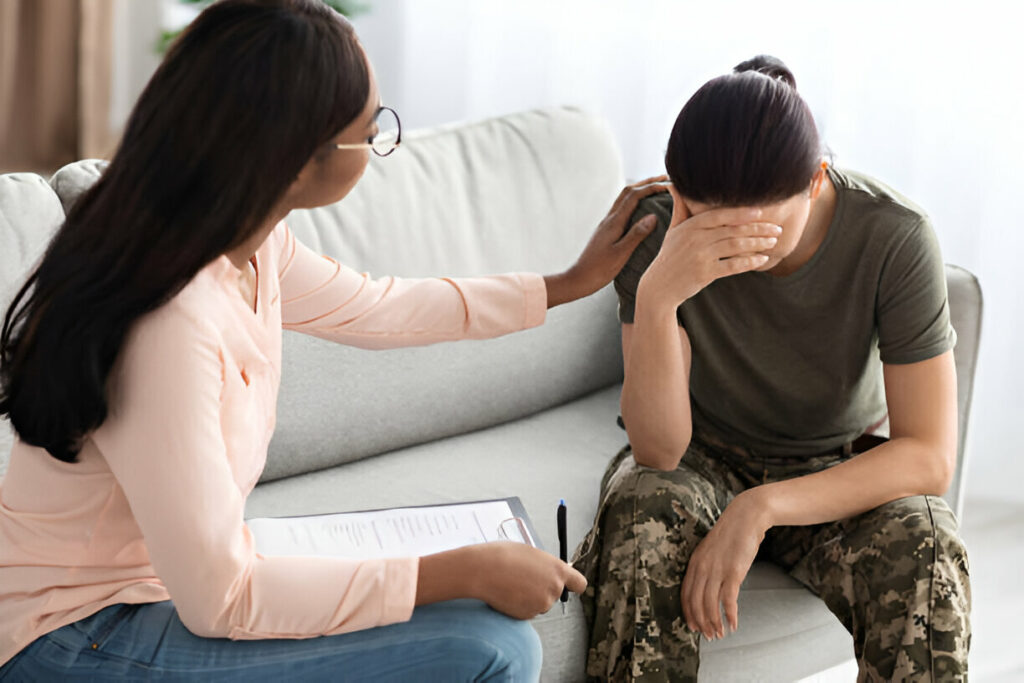Serving others often comes at a great personal cost. Veterans and first responders—those who protect, rescue, and heal—routinely face trauma that can lead to emotional distress, mental health disorders, and substance use issues. While they may carry a reputation for strength and resilience, they are also human beings who need and deserve support. Behavioral health care specifically tailored to their needs plays a crucial role in ensuring their well-being, restoring their quality of life, and fostering long-term healing.
The nature of service in the military or emergency response professions often exposes individuals to intense and repeated stress. From combat deployments to responding to natural disasters or witnessing tragedies on the frontlines, these experiences leave lasting psychological effects. Behavioral health programs must rise to meet these challenges with care models that are trauma-informed, culturally competent, and deeply rooted in empathy.
Understanding the Behavioral Health Needs of Service Members
The experiences of veterans and first responders are often uniquely complex. Not only are they exposed to trauma, but they are also trained to suppress emotion and prioritize duty over self-care. Over time, this suppression can manifest as post-traumatic stress, anxiety, depression, or substance misuse. Behavioral health support allows these individuals to unearth what’s been buried, process their emotions, and reclaim a sense of personal agency.
One key feature of effective care is the recognition that behavioral health for this population must be multidimensional. Veterans and first responders often carry unresolved trauma, which may appear as hypervigilance, irritability, insomnia, or emotional detachment. These symptoms can significantly disrupt relationships, work, and general well-being.
Additionally, because these individuals are often placed in high-stakes roles with little margin for error, many internalize the belief that seeking help is a sign of weakness. Breaking down this stigma is critical. Behavioral health professionals working with this population must create an environment of trust where vulnerability is not only safe but encouraged.
The Role of Trauma-Informed Therapy
At the heart of behavioral health care for veterans and first responders is trauma-informed therapy. Rather than asking “what’s wrong with you?” clinicians ask “what happened to you?” This subtle shift fosters compassion and helps individuals contextualize their struggles.
Many veterans have experienced combat trauma, moral injury, or military sexual trauma, while first responders may be burdened by cumulative trauma from years on the job. A structured Trauma Therapy Program in Ohio equips individuals with the skills needed to manage triggers, reframe distressing memories, and build emotional resilience.
Trauma-informed approaches acknowledge that recovery is not linear. For some, healing means being able to sit with painful emotions without becoming overwhelmed. For others, it’s finding ways to reconnect with family or return to work with a renewed sense of purpose. No matter the path, individualized trauma support ensures that care is aligned with each person’s goals.
Family Healing and Connection
One of the often-overlooked aspects of behavioral health for veterans and first responders is the impact their experiences have on their families. Spouses, children, and loved ones frequently bear emotional burdens as they try to support someone facing unseen struggles. That’s why family involvement is an essential component of comprehensive care.
Participating in a Family Therapy Program in Ohio allows relatives to better understand behavioral health conditions and develop healthy communication strategies. It also gives families a space to express their own emotions and experiences. Often, healing is more sustainable when it involves the entire support system.
Family therapy also helps rebuild trust, which may have been strained by emotional distance, mood swings, or substance use. Reestablishing connection with loved ones becomes a critical part of the journey toward long-term recovery and well-being.
The Strength of Shared Experience in Group Settings
While individual therapy provides an important foundation, many veterans and first responders benefit profoundly from healing in community. Participating in a Group Therapy Program in Ohio offers the opportunity to process experiences alongside others who “get it.” Shared understanding fosters trust and reduces the sense of isolation that often accompanies trauma and addiction.
Group therapy sessions are typically facilitated by clinicians who specialize in trauma or addiction recovery, ensuring discussions remain focused, respectful, and therapeutic. These sessions can explore topics such as coping mechanisms, stress management, mindfulness, and healthy relationship-building.
What makes group therapy particularly effective for this population is its ability to reframe vulnerability as a form of strength. When one person shares their story, it gives others permission to open up, breaking down emotional walls that have often stood for years. Over time, these groups become sources of accountability, encouragement, and deep camaraderie.
Integrating Mental Health and Substance Use Support
Many veterans and first responders grapple with co-occurring disorders—when mental health conditions such as PTSD or depression exist alongside substance use challenges. Treating both conditions simultaneously is essential for effective, long-lasting recovery. A high-quality Mental Health Treatment Program in Ohio integrates therapeutic approaches that address the full scope of an individual’s struggles.
This includes offering tools for emotional regulation, identifying triggers, and helping clients rebuild a healthy daily routine. It also requires ongoing support, including psychiatric care when needed, to ensure individuals remain stable and empowered throughout their recovery.
Clinicians working in this space must be attuned to the ways trauma manifests. This includes recognizing when symptoms of hyperarousal, dissociation, or emotional numbing are signs of deeper distress. Effective programs prioritize safety and structure while still allowing for the flexibility each person needs to thrive.

Building a Recovery That Lasts
Sustainable recovery requires more than just clinical intervention—it’s about building a new life rooted in meaning, connection, and confidence. Veterans and first responders often find purpose in peer mentoring, volunteering, or helping others on their recovery journey. These activities allow them to transform painful experiences into sources of insight and growth.
Access to long-term behavioral health support also ensures that individuals remain engaged in their wellness journey. As life continues to unfold—with career changes, family responsibilities, and transitions—ongoing support helps individuals maintain balance and avoid setbacks.
Creating a life after service or retirement can feel disorienting. Having access to structured, compassionate support during this period is crucial. It allows veterans and first responders to redefine who they are outside of their roles, to heal, and to begin living with intention again.
Why Choose Evoke Wellness?
At Evoke Wellness at Hilliard, we believe that effective behavioral health care begins with understanding—and there are few populations more deserving of that understanding than our veterans and first responders. These men and women have lived through circumstances few can fully comprehend. That’s why our treatment approach is built from the ground up with their specific experiences in mind.
Our multidisciplinary team includes licensed clinicians, medical professionals, and trauma-informed therapists who are not only highly trained but deeply committed to walking alongside each client on their journey. Many of our team members have personal or familial ties to military or emergency response professions, allowing them to bring real-world empathy to each interaction.
What sets us apart is our dedication to treating the whole person. This means care that doesn’t just address symptoms but helps individuals rebuild purpose, regain confidence, and reconnect with themselves and their loved ones. From the very first moment someone walks through our doors, they are met with dignity and respect. There are no assumptions made, no judgments cast—just compassionate professionals who are ready to listen and help.
We understand the barriers that often keep veterans and first responders from seeking help, including stigma, fear of being misunderstood, and concern about losing professional standing. Our programs are designed to reduce these barriers with a confidential, respectful, and flexible approach to healing. Whether it’s structured outpatient therapy or immersive residential care, we ensure every level of support is both evidence-based and tailored to your unique goals.
As a trusted Addiction Treatment Center in Ohio, we integrate addiction treatment, trauma recovery, and mental health care into a seamless continuum of services that help individuals not only heal but thrive. Our goal is not only to help you feel better—it’s to help you build a life where wellness is sustainable and fulfilling.
Conclusion
For the brave individuals who have served in the military or answered emergency calls in our communities, behavioral health care isn’t just important—it’s vital. The emotional toll of service can be profound, but with the right support, healing is absolutely within reach. Whether it’s working through trauma, repairing relationships, or finding new purpose beyond uniform and duty, help is available.
We offers a compassionate path forward—one that respects where you’ve been and supports where you’re going. We are here to provide the tools, therapies, and support you need to take the next step in your recovery journey. If you or a loved one is ready to begin that process, don’t wait. Reach out today. Our team is here to listen, guide, and help you rediscover the strength that’s always been within you. Call us anytime at 866.430.9267 to take the first step toward a healthier future.
Frequently Asked Questions (FAQs)
What types of challenges do veterans and first responders commonly face in behavioral health?
Veterans and first responders often deal with chronic stress, PTSD, depression, anxiety, and substance use issues stemming from repeated exposure to trauma and high-stakes environments. These challenges can affect both personal and professional aspects of life, making behavioral health support essential.
How does treatment differ for veterans and first responders compared to the general population?
Treatment for these groups is typically trauma-informed and tailored to reflect the unique pressures of military and emergency service professions. This often includes specialized therapy approaches, peer support, and an understanding of occupational culture.
Is trauma therapy required, or are there other therapy options available?
While trauma therapy is common due to the high incidence of trauma-related symptoms, other therapeutic options are available based on individual needs. These may include individual counseling, group sessions, family support, or holistic wellness therapies.
Are services confidential, especially for those still working in active service roles?
Yes, services are fully confidential. Protecting your privacy is a top priority, especially for those concerned about the impact of seeking treatment on their careers. Clinics typically follow HIPAA guidelines and offer discreet, supportive care.
Can family members be involved in the treatment process?
Absolutely. Family support can play a critical role in recovery. Many programs offer family education, therapy sessions, and support groups to help loved ones understand the recovery journey and strengthen relationships.
Is residential care necessary, or are outpatient options available?
Outpatient care is available and may be ideal for individuals who require flexibility or are transitioning from a more intensive level of care. Residential treatment is recommended when a higher level of structure and support is needed.



